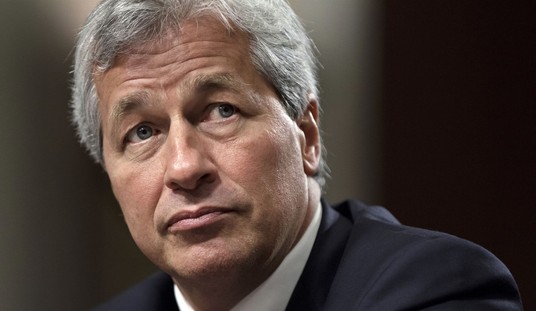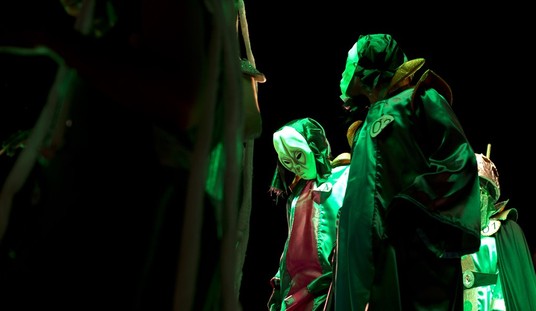=========
=========
Promoted from the diaries by streiff. Promotion does not imply endorsement.
=========
=========
In 1991, the West “won” the Cold War with the dissolution of the Soviet Union and the fall of the Berlin Wall. Perhaps in the euphoria of that time as we celebrated people dismantling the Berlin Wall and tearing down statues of Lenin coupled with a desire to realize the “peace dividend,” Western leaders lost sight of the bigger picture. One can also make a case that Western leaders were somewhat naive in their outlook regarding the new Russia.
Russia is a huge nation of many ethnicities spanning two continents. It has a huge nuclear stockpile and is rich in energy sources. After the fall of the Soviet Union, the resulting democracy was a messy affair. Many in the West assumed that Western style capitalism would simply take hold after a period of disruption as an economic system tightly controlled by the government would unwind.
What Western leaders failed to factor into the picture was that today’s leading statesmen in Russia were brought up in the USSR. Today’s Russia has no official ideology such as existed with the USSR, but their mindset is internationalist by default. Almost a century of Marxist inculcation cannot be swept away by the felling of a wall or defining a country’s boundaries. Although they often play the nationalist tune when politically convenient, their motivations for their actions today are, on the practical level, the same as Communist Russia. That is especially true of Vladimir Putin, a man so inculcated in the USSR model given his tenure in the KGB. And although not called the KGB today, the tactics and strategies of the various Russian intelligence agencies are no different than those of the KGB.
The lack of a unifying ideology among Russia’s leaders can be misleading. For this, one needs to have a basic understanding of Alexander Dugin, often referred to as “Putin’s brain” or “Putin’s Rasputin.” Believing that liberalism (exemplified by the West), communism and fascism were the three dominant ideologies, he argues that fascism was swept away in 1945 and Communism in 1991. Liberalism, having won, is in its death throes, a process he wishes to accelerate where a new Eurasian model will evolve. Under this model, the Russian empire which preceded the Soviet Union will be re-established and pushed westward to Portugal. Tactically, this is no different than the aspirations of Communist Russia. However, ideologically they are not pushing communism.
Dugin’s main thesis was 1997’s “Foundations of Geopolitics” which is required reading for Russian military and intelligence officers. It is also an outline of Russian methods to be used to usher in this new era where the pole of influence lies not in Paris, Berlin or Brussels, but in Moscow. Dugin realizes that politically and economically, the new Russia cannot wield hard power despite having a nuclear arsenal. That merely gets Russia and Putin a seat at the table. Instead, soft power is to be used by fomenting unrest in targeted states through a campaign of propaganda and misinformation, backing separatist movements within countries and forming a Russia-Islamic alliance with Shiite states (Iran). It also calls for cutting Great Britain off from mainland Europe.
Russia’s designs on the Ukraine through the annexation of Crimea and their involvement in eastern Ukraine are an outgrowth of this philosophy. Likewise, so is Russia’s outreach to and defense of Iran. They have sponsored separatist “conventions” that included such unlikely figures as secessionist movement leaders from Texas and California, the Catalan and Basque regions of Spain, Scotland, and Italy.
Their lack of ideology is demonstrated by the groups they support showing no preference whether on the Right or the Left provided they serve Russia’s end game. The Leftists oppose Western imperialism while ignoring or even defending Russian imperialism. They oppose the expansion of NATO into Central and Eastern Europe. They are at the forefront of LGBT rights but support a country that has brutally cracked down on homosexuals. On the far Left, today’s Russia has cultivated friendships in the anti-globalist movements and among environmentalists. This was by design and relationships between Moscow and the far Left that laid dormant from 1991 to 2001 were reignited when Putin came to power.
They are believed to be quite influential on the other side of the political spectrum and the libertarian Ron Paul Institute which preaches isolationism on the part of the US is an example. Many members of that Institute are regulars on Russia’s Sputnik or RT stations. Many of the sentiments of Dugin (and Putin) are echoed by far Right Wing leaders like Richard Spencer. Dugin has been particularly interested of late in stirring up racial tension in the United States.
Since 2009, Russia has developed strong links to far Right wing parties such as Hungary’s Jobbik, the People’s Party in Slovakia and Bulgaria’s Ataka movement. They have simultaneously re-established links to former Leftist friends like Germany’s Die Linke, the Polish Democratic Left Alliance, and the Greek Communist Party. All were designated observers in the Crimea referendum on annexation. And in Spain, Moscow holds influence over the Leftist Podemos party.
All the tricks in the Russian playbook today were used in the former Soviet Union’s war against the West. The Communists themselves advocated mobilizing radical black Americans to foment unrest against white Americans. Putin is implementing the strategies suggested by Dugin which is a rehashing of the methods used by Communist Russia to destabilize Western powers.
These strategies do not stop with hacking the e-mail accounts of American or European political parties. The fact there was not widespread condemnation against Russian expansionism into the Ukraine and the Brexit vote show that Russia is successfully dividing Great Britain. The fact that there is so much division in the United States politically shows that Russia is gaining ground here. The fact that far Left and far Right parties in Europe are acting and doing the bidding of Moscow shows they are succeeding there.
Dugin later elaborated on his strategy as it concerns the United States:
introduce geopolitical disorder into internal American activity… (by encouraging) all kinds of separatism and ethnic, social and racial conflicts, actively supporting all dissident movements – extremist, racist, and sectarian groups, thus destabilizing internal political processes in the U.S. It would also make sense simultaneously to support isolationist tendencies in American politics.
Viewed in this light, the extreme radical Leftist tendencies we see being played out today have Dugin’s fingerprints all over them. The Left’s adoration of Russia did not end when the Berlin Wall fell. To the Left, the United States is the source of all evil in the world and the rest of the world its victims (including Russia). Much of the early campaign was protesting wars in Iraq and Afghanistan. But from at least 2005 onward under Putin’s leadership, Russia has been a key facilitator of Leftist actions. The fact that Right wing movements have evolved that reject the post-World War II order has gained them more allies of which they can take advantage.
To Russia, there is only one logical leader of this new Eurasian Union they envision- Russia. The goal is to correct what they view as a historical wrong and to start to bring back the Russian empire that existed before 1917. Most scholars note that Putin’s authoritarianism and his actions in Syria and the Ukraine show that he is simply playing the long Eurasian game. Others have noted that Dugin has lost some influence since he has been critical of Putin for not striking quicker while the iron is hot.
This would not be the first time in history that Russia collectively thought that everything was wrong in the world, that they were the victims and that everything needed to be uprooted to correct a perceived wrong. Whether Putin is in power or not, that tendency to be the victim and the resulting paranoia will persist. One cannot reshape centuries of Russian history and the Russian psyche in one fell swoop.
Whether under the czars- the Russia to which Putin desires to return his country to its former geopolitical glory,- or under the Communists- the methods of whom Putin uses to achieve these ends- the result is a Russia that will not stop at the Ukrainian border in their designs to create a new world order, but will push westward.
In that sense, the Cold War never really ended, but laid dormant for a mere decade. In a strange, odd sense, Putin’s statement that the fall of the USSR was the greatest geopolitical debacle to befall the 21st century holds some truth. Likewise, Trump’s assertion that US-Russian relations are at all all-time low also holds some truth.
The last time Russia or the USSR vied for geopolitical domination, it did not end well for them. Have Dugin and Putin stumbled upon some new unifying ideology of Eurasianism- a system that transcends economics? And if so, is America and Europe playing into their hands as evidenced by the political discord and animosity?
Russian interference in the US 2016 Presidential campaign was not really all that sophisticated and rather cheap. Yet, look at the discord they achieved to date. Dugin could not have scripted it better; Putin could not have implemented it any better. And as long as American politicians look at the trees instead of the forest, they couldn’t be better co-conspirators.












Join the conversation as a VIP Member